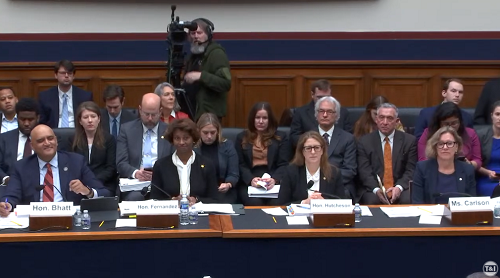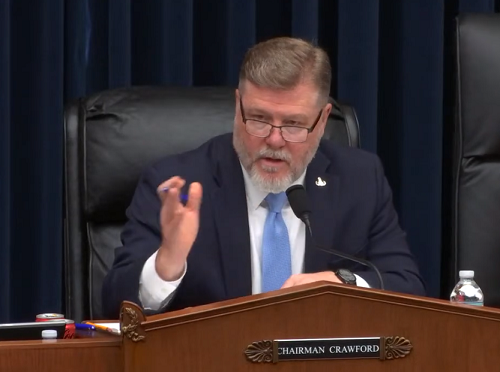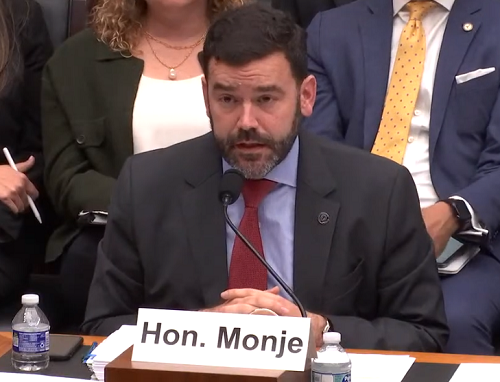Leadership from U.S. Department of Transportation (USDOT) including heads of its highway and transit operating administrations shared their insights on the implementation of the Infrastructure Investment and Jobs Act (IIJA) recently during a House of Representatives Transportation and Infrastructure Committee hearing.

The leaders testifying at the hearing – held by the House T&I Subcommittee on Highways and Transit – included Carlos Monje, Jr., USDOT undersecretary for policy; Shailen Bhatt, administrator of the Federal Highway Administration; Nuria Fernandez, administrator of the Federal Transit Administration; Robin Hutcheson, administrator of the Federal Motor Carrier Safety Administration; and Ann Carlson, acting administrator for the National Highway Traffic Safety Administration.
Rep. Rick Crawford (R-AR), the subcommittee’s chair, expressed concern at the hearing over the impact of inflation on the funds provided in the IIJA as well as the slow approval process for many competitive grant programs authorized by the measure.
“In the two years since IIJA became law, persistent inflation has pushed up prices,” Crawford noted in his remarks. “According to the Bureau of Transportation Statistics, highway construction costs have increased in nine out of the last 10 quarters, and compared to the last quarter of 2020, highway construction costs increased 53.8 percent. The expected increase in purchasing power provided by IIJA has, therefore, greatly diminished.”

He added that the “extremely slow rate” IIJA-funded competitive grant agreements are being negotiated and signed means money “isn’t going out the door” and projects aren’t getting done. “Slow execution of contracts and confusing guidance documents have the very real risk of delaying critical transportation projects.”
USDOT’s Monje noted in his testimony that his agency is “cognizant that some of the most critical projects are not being funded simply because smaller agencies face a steep learning curve as they navigate the federal funding landscape.” That’s why he said USDOT is not only providing “technical tools and organizational capacity” to help communities compete for federal infrastructure grants but also partnering with tribal, state, and local project sponsors to help “speed up project delivery” and thereby maximize and accelerate the benefits of these investments.

Shailen Bhatt, FHWA’s administrator, emphasized the importance of those partnerships in helping improve the U.S. transportation system. “I have had the privilege to travel around the country to see and hear the immediate need for safer, accessible, and resilient transportation,” he explained in his testimony. “The transformational funding provided by this Congress has enabled FHWA, in partnership with states and localities, to create a system that delivers for our economy and all of our people, while getting individuals and goods safely to their destinations.”
Bhatt also said FHWA is trying to address the inflationary and paperwork issues highlighted by Rep. Crawford. “I recognize that inflationary pressures can present challenges for project sponsors, but this is not a unique challenge for U.S. transportation projects,” he explained.
“At FHWA, we are aware of these challenges and recognize that time is money, which is why we are committed to helping deliver projects on time and on budget. We [have] also implemented process reforms across our suite of federal grant programs [and] continue to refine our management of these programs to increase efficiency and transparency, thereby benefiting the nation via the delivery of new projects,” Bhatt noted. Information courtesy of AASHTO. Learn more here
 TEXTILES.ORG
TEXTILES.ORG


